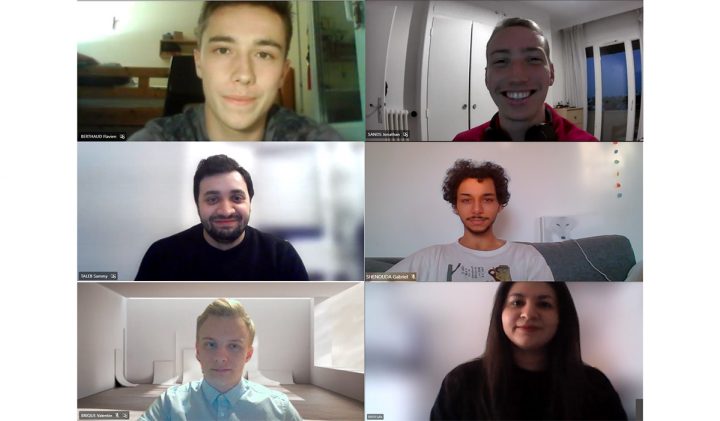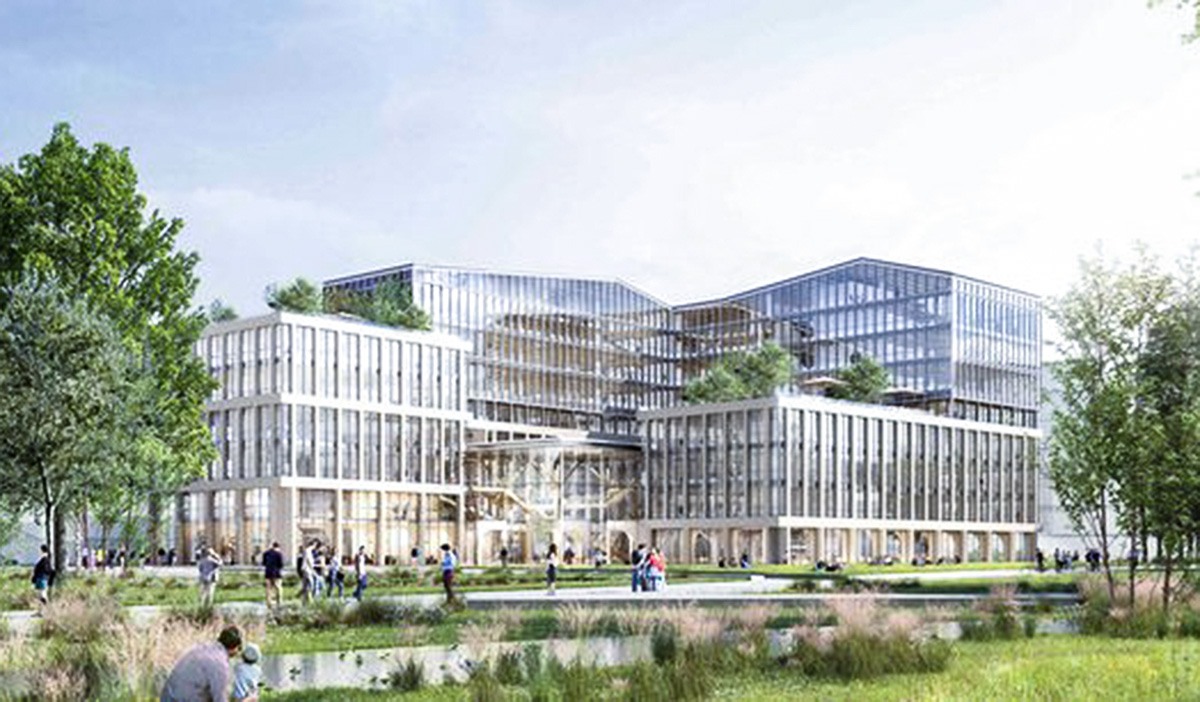Making data speak is focus of OnePoint Hackathon to enact buildings resilience in the face of climate change. Two ESILV teams were among the winners. One team won the challenge.
The new 30,000m² campus located in the heart of the innovative Bordeaux Euratlantique district marks the desire of the OnePoint group – one the ESILV’s corporate partners – to change the model of digital services companies. This XXL campus served as a use-case for the “Resilient Buildings & Climate” hackathon. The 2021 Hackathon sets a two-part virtual challenge:
- 4 February: explore data and create new data science assets
- 11 March: testing assets to validate their value
The 2021 edition of the Onepoint Hackathon brought together four teams from 3 engineering schools. 2 ESILV teams have managed to mark the first and the third place. The winning team wins a 3-weeks intensive training session offered by OnePoint’s specialists to create a fully functioning PoC.
First place: addressing energy risks
“We formed a team of three students in the Energy and Sustainable Cities major: BADJI Lylia, BRIQUE Valentin, BERTHAUD Flavien, and three students in the Data and Artificial Intelligence major: SANDS Jonathan, SHENOUDA Gabriel, TALEB Sammy.


An ESILV team takes first place in the OnePoint Hackathon
Energy efficiency appears to be a central element in the resilience and sustainability of a building: we, therefore, focused our research on the management of energy risks and threats that the structure could face in the context of the Bordeaux climate change.
We presented a two-part solution. First, we used predictive Machine Learning algorithms developed in Python to predict the building’s energy consumption at a given time. This prediction is only helpful if it is compared to a reference value.
The second part of our solution is a scoring algorithm. A score calculation determines the building’s energy consumption and whether this consumption is out of line with an average trend that is considered acceptable.
This solution aims to enable the building manager to monitor the overall consumption of the building in real-time.
Suppose a prediction is deemed too high by the Scoring algorithm. In that case, the person in charge will act directly on his building in real-time, without considering the data or algorithms behind these forecasts. Our solution is designed to optimise building management by making it easier for the manager to interpret the data.
Third place: improving the thermal comfort of buildings
The Devinci Dome team includes 6 students in the Energy and Sustainable Cities and Computer Science, Connected Objects and Security majors: Béatrice MACE, Mardie BARDET, Stéphane TRAN, Florentin BAILLY, Aymeric PERONNAU-NYSSENS, Benoit CORDIER. Their solution won third place in the competition.
“Our research has shown that these episodes of heatwaves are very present in the Nouvelle-Aquitaine region. With the help of the various tools provided to us, such as Meteomatics or SpinalCom, we looked at the case study. We designed some metrics: apparent temperature, incident solar radiation, and surface temperature in contact with the building.
To improve the occupants’ well-being in a Bordeaux building during heatwaves, DaVinci Dome studied several vital parameters to forecast the building’s interior temperature and then implement a cooling solution using the waters of the Garonne River.
To do this, we used databases of the Garonne river temperatures as well as the city temperatures to simulate, using Python and Machine Learning, the internal temperatures of the building.”
The solution created by an ESILV team won third place in the OnePoint Hackathon
Combining data science and sustainable buildings solutions to challenge the “learning by doing” pedagogy in engineering schools was the challenge of the OnePoint Hackathon. This methodology is at the heart of ESILV’s innovation projects, which allow each student to discover and cultivate their skills and talents.
This post was last modified on 18 May 2021 6:16 am





